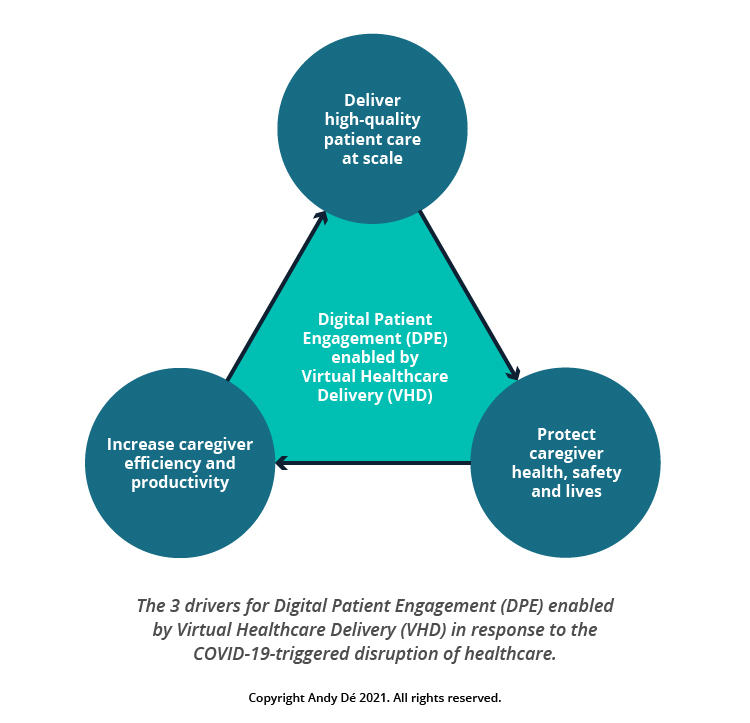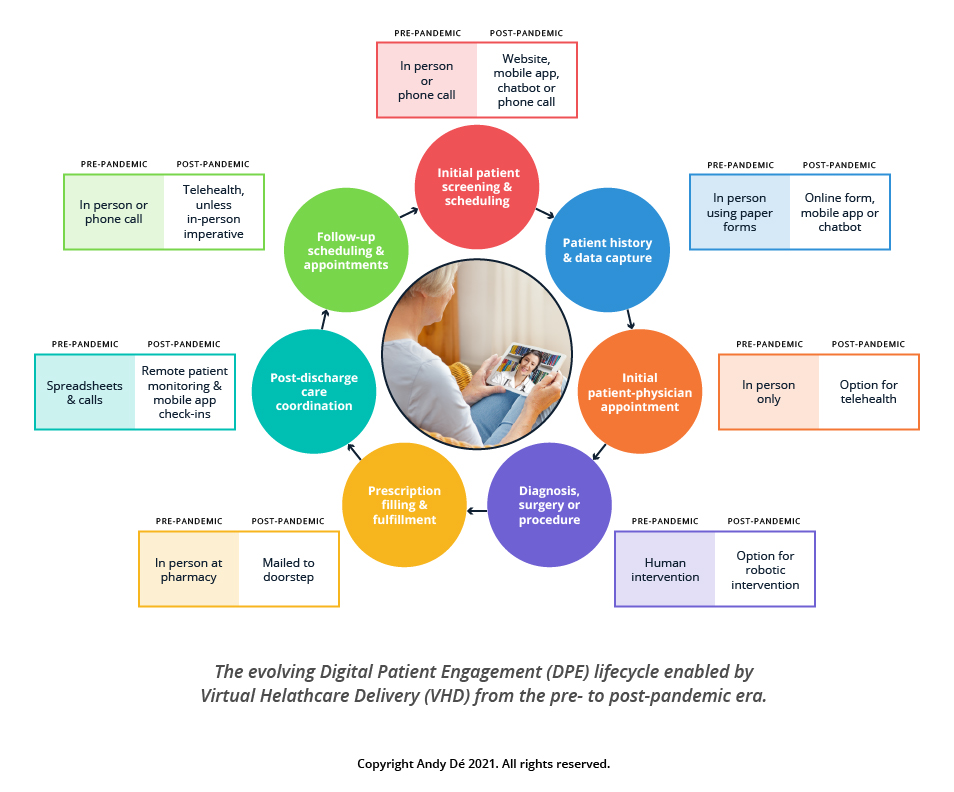Part 2
Last week, we started a new series featuring healthcare visionary and thought leader Andy Dé. In this series, Dé discusses how COVID-19 has triggered remarkable digital transformation and uncovers five long-term innovation implications that providers, healthcare leaders, and payers need to consider.
Catch up on the first implication—advanced analytics for vaccine administration—then read on to explore number two in this week’s article.
Innovation implication #2: Digital patient engagement and virtual healthcare delivery
Protecting the health, well-being and safety of healthcare practitioners and first responders is paramount — and will accelerate adoption of Digital Patient Engagement (DPE), enabled by Virtual Healthcare Delivery (VHD) solutions (also known as “Hospital at Home.)”
As pictured below, there are three primary drivers for DPE and VHD:
- A clear need to deliver high quality healthcare to a massive number of patients afflicted with a contagious disease and co-morbidities.
- Risks presented by acquiring COVID-19 combined with continued lack of sufficient equipment, PPE, and rest for healthcare workers
- The need to minimize direct contact of providers with patients while increasing level of care efficiency and productivity

When I have this conversation with healthcare colleagues, the next question I typically receive is: “Andy, this sounds great, but where do we start?” The chart below demonstrates several helpful examples of how technology can be used to transform typical patient interactions and needs:

If you’re interested in more details about how to actually make changes like the ones described above, reach out to start a conversation. Join me back here on the MedeAnalytics blog next week for Innovation implications #3: Artificial intelligence and machine learning for operations, revenue cycle and supply change management innovation and #4: Medical robotics.
Get our take on industry trends
Best practice tools to build an integrated approach to multimorbidity
The traditional model of treating single diseases no longer works. Data collected from 2016 to 2019 indicated that 32.9% of…
Read on...Will adopting a risk-based approach with augmented analytics support care gap closure?
A common challenge for healthcare systems is how to properly segment its patient populations based on risk profiles and co-morbidities. Doing this well ensures a high quality of care delivery and superior patient outcomes.
Read on...4 questions healthcare executives are asking about augmented analytics
At our annual Impact Summit, I had the privilege to talk about augmented analytics and address questions from healthcare executives—many…
Read on...


